Mushroom Nutrition and Medicine, East and West
Don’t underestimate the lowly mushroom! There’s far more to mushroom nutrition than you may think. Even the common button mushrooms at the grocery store are packed with valuable nutrients. Wild and specially mushrooms are prized for culinary use across traditional cultures East and West – porcini, morels, chanterelles, truffles, maitake, shiitake, oysters and more!
Mushrooms are not plants. They are the fruiting bodies of fungi. Picking mushrooms is like picking apples – you are just collecting the fruit. The living body of the fungus, called the mycelium, is underground and hidden, giving mushrooms an air of mystery and danger. And of course, some wild mushrooms can be poisonous – expert identification is recommended!
In addition to mushroom nutrition, Asian cultures have recognized and tapped into the healing power of mushrooms for centuries. Different mushroom species are recognized for having different medicinal properties.
In Chinese herbal medicine, many mushrooms are valued as powerful qi tonics – in other words, they boost the vital energy (qi) of the consumer. They are a key ingredient in traditional Chinese herbal tonic formulas – the traditional “anti-aging” formulas.” They help the person to age optimally. Mushrooms of various kinds are used to treat immune deficiency, fatigue and even low libido! They are often called adaptogenic herbs, meaning that they have wide-ranging properties in helping the living organism adapt to stress.
What makes certain mushrooms so potent? Modern biochemical research on mushrooms had begun to bear out what traditional Chinese herbal medicine has known for centuries, identifying specific beneficial nutrients available in fungi. In addition, clinical studies of various mushroom species have shown benefits for treatment of conditions ranging from neurological disorders (Alzheimers and dementia) to cancer, diabetes and cardiovascular disease. Scientists are beginning to understand the biochemical compounds responsible for these health benefits.
Mushroom Nutrition: Key Nutrients
Mushrooms are nutrient-dense foods. While not all mushroom species are created nutritionally equal, there are some things that can be said of mushroom nutrition generally, including the common commercially-grown button mushrooms and portobellos. (Both are the same species, by the way, Agaricus bisporum.) Mushrooms are:
- high in fiber
- rich in several B vitamins, including folate (B9)
- good source of minerals, including copper, potassium, magnesium, zinc
- contain beta-glucans, immune-enhancing sugars found in the cell walls
- contain choline, a key nutrient for many steps of metabolism
- Low in calories
- no fat and no cholesterol
All of these benefits of mushroom nutrition make them a great food to include in your diet. Mushrooms can help with weight management, preventing obesity, Type 2 diabetes, heart disease, inhibiting the growth of cancer cells, and generally lowering morbidity and mortality.
Powerhouse Mushroom Nutrition: Anti-oxidants and Healthy Aging
Mushrooms contain four key micronutrients important for healthy aging: selenium, Vitamin D, glutathione, and ergothioneine. These four all function as anti-oxidants, which help reduce oxidative stress. Oxidative stress is one of the major contributors to diseases of aging, including cancer, heart disease and dementia.
- Ergothioneine, or ergo: is an amino acid, found in nature primarily in fungi and is a powerful antioxidant. Mammals, including humans, have a genetically-coded ability to pull ergo into the red blood cells and transport it to tissues under the most oxidative stress. Wild and specialty mushroom species are the best sources of ergo, containing much higher levels than button mushrooms. The highest levels were found in porcini mushrooms, followed by oyster mushrooms and shiitake. A study done in Singapore showed that ergo levels declined with age and correlated with increased cognitive impairment.
- Glutathione: or GSH, is a master anti-oxidant in the body that has key roles in detoxification and mitochondrial function. Studies showed maitake mushrooms to be the highest in GSH. Shiitake and oyster mushrooms also contained significant amounts of GSH.
While GSH and ergo are not found in significant amounts in common cultivated button mushrooms or portobellos, two other antioxidants are:
- Vitamin D: Placing freshly cut button mushrooms in the sun significantly increases their vitamin D content. The vitamin D in mushrooms has also been shown to inhibit the growth of cancer cells by contributing to the regulation of the cell growth cycle.
- Selenium: This important mineral is not present in most fruits and vegetables. It plays a role in liver enzyme function, and helps detoxify some cancer-causing compounds in the body, prevents inflammation and decreases tumor growth rates.
Mushroom Nutrition, Agriculture and the Web of Life
Besides eating wild mushrooms like oysters, shiitake and porcini, how do we get enough ergo, as well as GSH, in our diets? Ergo gets into the food chain through healthy agricultural soils. Fungi have a symbiotic relationship with plants and pass the ergo to the plants, and then on to humans who eat the plants. So, the nutritional value of our foods depends on having healthy fungal populations in the soil. Tilling, common practice for agribusiness, tends to destroy fungus in the soil, and studies have shown that grains produced through organic non-tilling agricultural practices have higher levels of ergo.
Mushroom nutrition reminds us that we are all dependent on the web of life, including the invisible fungi in the soil. So the next time you grill a portobello, or stir-fry some shiitakes, let the tasty mushroom be a reminder that we need the humble fungus below!




